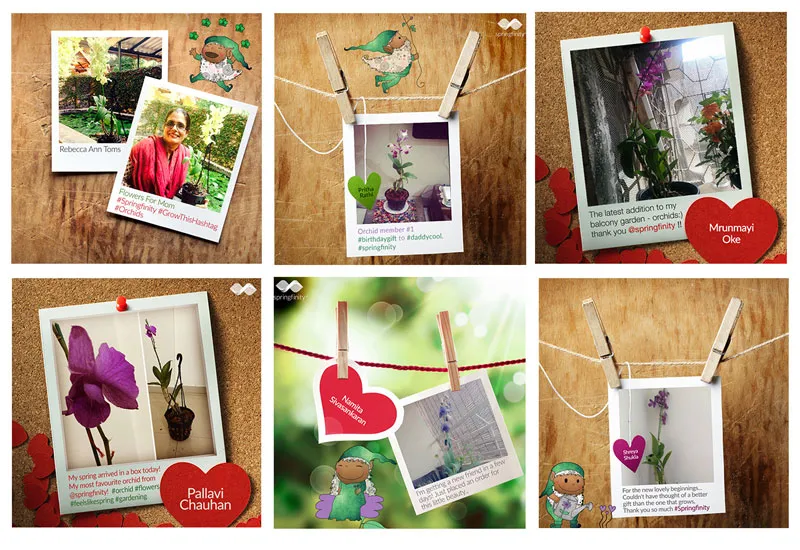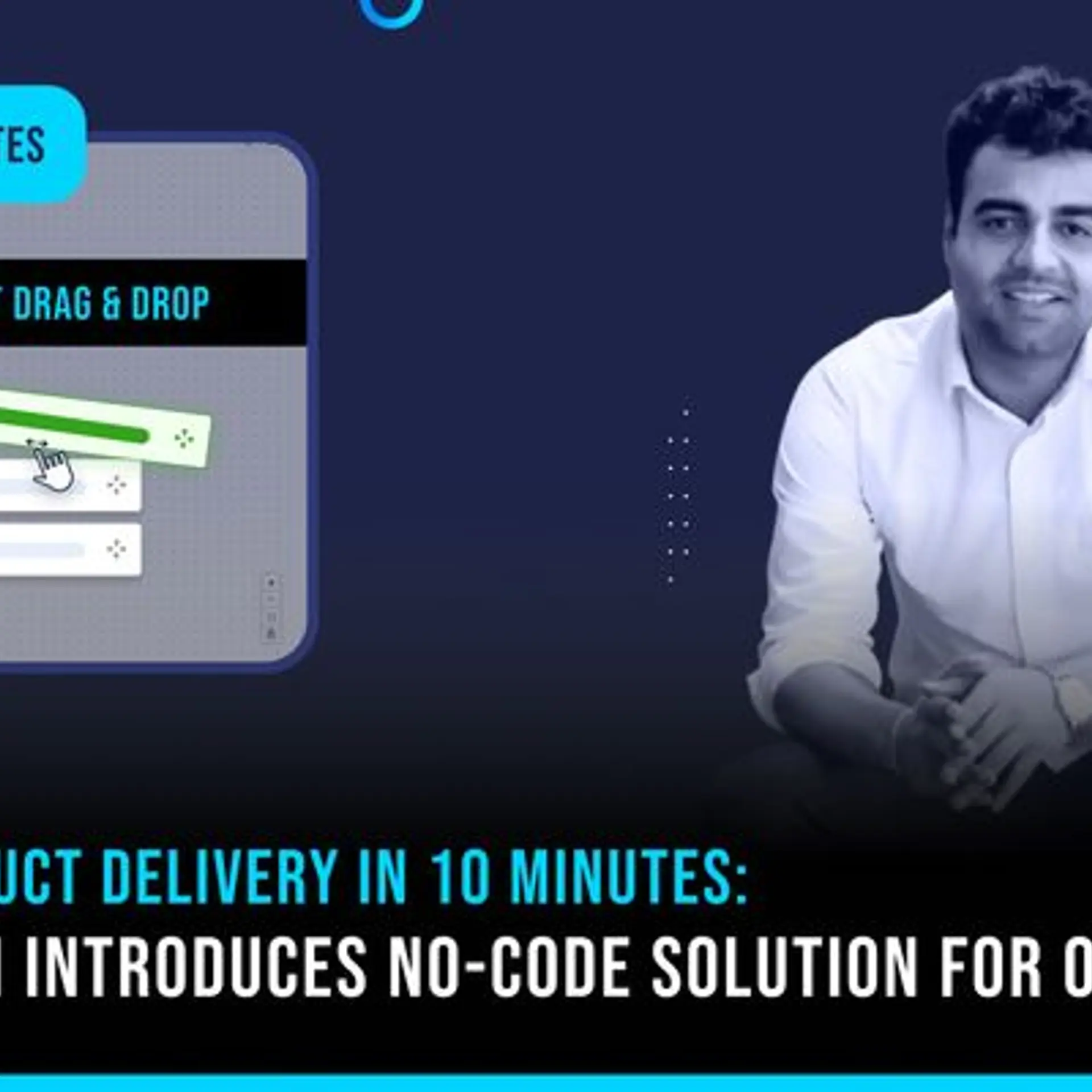Springfinity - making urbanites bring a garden home
For most of us city-dwellers, having a garden in the house is either a dream too fancy to ever realize, or is a memory from some past evoking childhood nostalgia. Trapped in matchbox homes, we marvel at the colors as we zoom past a florist, or, if you’re truly deprived, then you get by admiring the sunshine yellow of daffodil fields on your computer wallpaper.
What if you were told that you could actually grow a blooming garden in your limited indoor space with exotic orchids and anthuriums? That by spending only 20 minutes a week, you could have these plants not only survive but also thrive? This is not an urban myth. A startup is hoping to make it a reality.

Meet Springfinity.com, a new venture out to defy the belief that gardens don’t belong in urban spaces. It’s Founder Anand Sankar was inspired from having grown up in a home with a burgeoning garden, and a mother who was always approached by people for garden maintenance tips. Having an agricultural university located near his home Anand constantly heard field experts speaking extensively on the subject.
Anand, along with his classmate from MICA, Amal Roy, and Shifaz Salim who was then attending IIM-I, figured that the LOHAS (Lifestyle of Health and Sustainability) segment was growing fast globally, and India was no exception to the rule. It led them to conceive of Springfinity.com as an online aggregator of plants, gardening accessories & services, organic produce and green consumer products.
We sat down with Anand to discuss the concept, and the plans for the future.
YS: I live in a tiny apartment in Mumbai that isn’t exactly ideal for growing plants. Although I love plants, I have no idea how to go about growing my own.
AS: It’s this common concern that actually led us to conceive Springfinity. I was studying at MICA when Amal and I started talking about how gardening is often perceived to be a time-consuming and highly technical hobby. Casual gardening has a lot of people interested, but very few carry on to grow a garden of their own. We wanted to help demystify gardening for the interested consumer, and also empower nurseries across India to find a new business.
If you want an exotic plant, or even a common one at your home/office, all you need to do is visit www.springfinity.com, select the plant of your choice and the kit you are comfortable with (basic/complete).
YS: I don’t want to sound difficult, but between work, and socializing I have very little time. Do you think I can take care of these ‘exotic’ plants all by myself?
AS: The plants that we currently have on selection are a wide variety of orchids, anthuriums, and exotic horticultural plants. These plants do not take up space and are super easy to take care of. Also, all our plants come with a startup kit with tips that ensure that you spend no more than 20 minutes of your time a week tending to your garden.
Gardening is strangely addictive, mainly because you are engaged in the process of nurturing life and the end product is beautiful, delicious or both! We hope to build a community of gardeners who find happiness in living a healthy life. We call this part the journey to Springfinity.
We will also soon introduce kitchen garden kits, flowering seeds and gardening accessories, including self-watering pots for our busy customers.
YS: Why can’t I just walk into my local nursery to get these plants?
AS: We are a complete gardening solution and our gardening kits are not just about the products we offer, it is also about the expertise that would help the casual gardener get up and running in no time.
The kit includes a pot, hanger, maintenance mixtures, our distinctive growth supplement – Magic bloom and more. Hence, our offering is different from most local nurseries/gardens in that the casual gardener in an Indian town has very limited options to get all they want at the same place. And there is just not enough time to invest in finding the right plant, pots, potting material, manure and other after-care material from different parts of the town.
Another problem is the lack of a community where they can learn about gardening starting from the basics. While there are a few options online, very few websites are different from an offline nursery in their user experience. All our efforts will be in the direction of creating a value based ecosystem that empowers both the consumer and the vendor (local nurseries/gardens).
YS: So, if not local nurseries, what is your main competition?
AS: Most of our competition services people who are already gardeners, and very few competitors are building the category to add new customers who are interested, but have very little idea about maintaining a garden.
We have put in a lot of effort in identifying the right solution for the casual gardener. Also, as of now, we have started off with plants that are suited to growing in all conditions. So in that sense, our solutions are suited as well to the newbie gardener as it is to a gardening enthusiast.
E-commerce offerings such as F&P, Floral Kart are great websites with a large customer base. However, most of them mainly concentrate on cut flowers, and have plants as an added product category for decorative/gifting purposes. These websites are indirect competition, no doubt. However, with our wide variety of offering, we hope to cater to a much wider consumer base, and help people discover the joys of the garden.

YS: What poses as your biggest challenge?
AS: The biggest challenge for Springfinity is the lack of consistent availability of inventory. Currently, most of our plants are sourced from vendors in Kerala and Bengaluru, most of whom have import licenses. As we move ahead, we will look to bring smaller and new nurseries to our fold and provide them with support in growing multiple plant varieties all year round. Most nursery owners are also technology agnostic, and we are in the early stages of convincing them to embrace the digital path to find new customers.
To make available all varieties of plants, both flowering and non-flowering, at all points throughout the year is our aim, but making it a reality is a challenge that we're aware of and have started working on. All our plants can be grown in most cities and towns in India, and we’ve already shipped to most parts of South India, Maharashtra, Goa, Kolkata, MP and Delhi/NCR with favorable results. We’re also working closely with experts to segregate our product offerings for the various geographies of our subcontinent.
YS: Where do you see yourself heading in a few years from now?
AS: Springfinity has been bootstrapped with about Rs 6.5-7 lakhs. As a business, we hope to grow into the LOHAS segment in the long run. The LOHAS market globally is pegged at over $500 billion and in advanced markets, consumers who fall under the LOHAS category can be between 10-30 per cent.
While currently the percentage of LOHAS consumers is low across India, the overall numbers could see a dramatic increase, as the young urban consumer base discovers products and services that are sold by socially and environmentally conscious companies.
In the long run, Springfinity hopes to grow into all categories organic. This will include plants, gardening accessories, organic produce, all green consumer products and gardening services, including landscaping and interior planning services in the future. We hope to grow into the one platform where the consumer can purchase anything related to gardening.
We’re also looking for the right seed fund to effectively expand into the LOHAS segment.
YS: You are graduates from IIM and MICA. Were you worried about being judged, and what have been some of the craziest things you’ve heard?
AS: We’ve all been told things like: “Why are you ‘wasting your education’ by selling flowers?” “All your classmates are traveling on work abroad, what are you doing?”
The pressure does get to all of us at different points, but what unites us in this journey is the belief in what Springfinity stands for. Societal stigma has often been a source of humor and inspiration for the three of us. Thankfully, most of our vendors are great people to work with. Even though some of them are technology agnostic, they are full of hope and are very forward thinking, surely an effect of having spent so much time at the garden!
YS: Any tips to share with budding entrepreneurs?
AS: We’re very new to the entrepreneurial space ourselves. If anything, all we can say is that you need to put your head down, be humble, and work collectively towards the goals and vision that you have set for yourself. Everybody we’ve met through Springfinity has taught us something new, and we love the process of constant evolution. Like we’ve mentioned, Springfinity is the state or quality of infinite rebirth and renewal. We try and follow the same at work as well.







